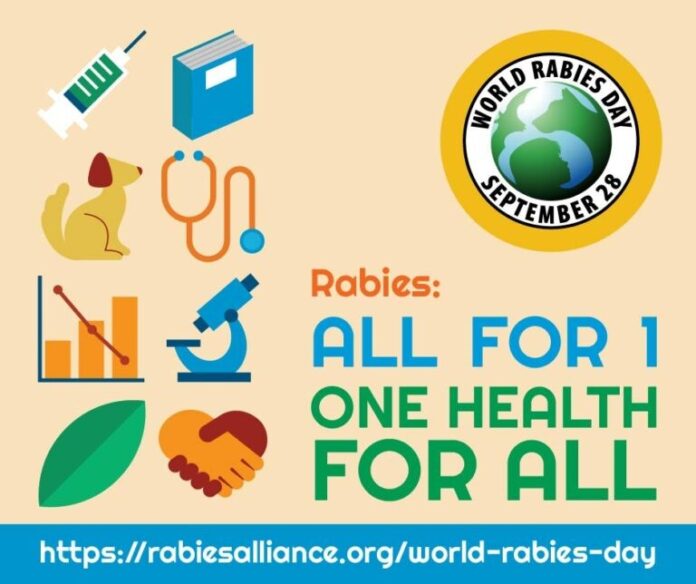One Health Approach in Rabies Control: A Comprehensive Perspective
Introduction
Rabies is a deadly viral disease that has plagued humanity and animals for centuries. It is caused by the rabies virus, primarily transmitted through the saliva of infected animals via bites or scratches.
While rabies remains a global health concern, the One Health approach has emerged as a comprehensive and interdisciplinary strategy to tackle this zoonotic disease effectively.
This essay explores the application of the One Health concept in rabies control, emphasizing its significance in human and animal health, as well as the environment.
Understanding Rabies from a One Health Perspective
The One Health approach recognizes that the health of humans, animals, and the environment is interconnected. In the context of rabies, this means considering the disease not just as a medical issue but as a complex ecological and public health challenge. Rabies is endemic in many parts of the world, affecting both domestic and wild animals. Therefore, addressing the disease necessitates collaboration between various sectors, including human and veterinary medicine, wildlife conservation, and environmental management.
Human Health: Preventing Human Rabies
The One Health approach emphasizes rabies prevention through mass vaccination campaigns for both domestic animals (such as dogs) and wildlife reservoirs (such as raccoons and bats). By vaccinating these animals, the risk of rabies transmission to humans is significantly reduced. In regions where dog rabies is endemic, a concerted effort to vaccinate dogs can break the cycle of transmission, protecting human populations. Moreover, educating communities about rabies prevention, responsible pet ownership, and proper wound care following potential exposures is essential for reducing human cases.
Animal Health: Protecting Domestic and Wild Species
One Health recognizes the importance of protecting not only humans but also animals. In the case of rabies, this means ensuring the health and welfare of domestic animals through vaccination programs and responsible ownership practices. Additionally, wildlife species that serve as rabies reservoirs need to be monitored and managed to prevent spillover events. By understanding the dynamics of rabies in wild populations, authorities can implement targeted control measures to limit its spread.
Environmental Health: Conserving Ecosystems
Rabies control also has environmental implications. The One Health approach acknowledges that changes in ecosystems can influence disease dynamics. For instance, habitat destruction or climate change may alter the distribution and behavior of wildlife species, potentially affecting the spread of rabies. Protecting natural habitats and maintaining biodiversity are crucial components of the One Health strategy, as they help stabilize ecological systems and limit disease transmission.
Collaboration and Surveillance
Effective rabies control demands collaboration across sectors and disciplines. Public health agencies, veterinarians, wildlife experts, and environmentalists must work together to monitor and respond to rabies outbreaks. Surveillance systems play a vital role in tracking the disease’s spread, identifying hotspots, and assessing the effectiveness of control measures. This multidisciplinary approach ensures that interventions are evidence-based and adaptable to evolving circumstances.
Conclusion
The One Health approach in rabies control is a holistic strategy that recognizes the inter-connected-ness of human, animal, and environmental health. By addressing rabies from this comprehensive perspective, we can better prevent and manage the disease.
Through mass vaccination campaigns, responsible pet ownership, wildlife management, and environmental conservation, we can reduce the burden of rabies on society while safeguarding ecosystems and animal welfare. Ultimately, the One Health approach offers a promising path towards a rabies-free world.
Submitted By V.SIVA SAI KRISHNA
1st year M.V.Sc Scholar Veterinary Surgery & Radiology Nanaji Deshmukh Veterinary Science University,JABALPUR, M.P ,College of veterinary science and animal husbandry Rewa.



